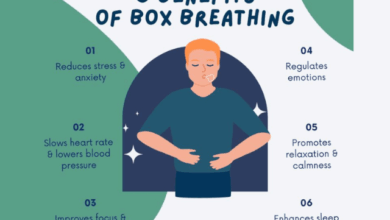Improve your mental wellbeing through daily habits

Life throws curveballs. Sometimes, those curveballs feel less like challenges and more like overwhelming weight. Feeling down, sad, or just…off is something everyone experiences. But when those feelings linger, and start to interfere with your daily life, it might be more than just a bad day. It could be depression. The good news is, there are things you can do – small, daily habits and, when appropriate, exploring options like supplements for depression – to start feeling like yourself again. This isn’t about a quick fix; it’s about building a foundation for lasting mental wellbeing. We’ll explore practical steps you can take, and discuss how supplements might fit into a broader plan, always emphasizing the importance of talking to a healthcare professional. This article will cover everything from simple lifestyle changes to understanding the potential role of vitamins and minerals in supporting your mood. We’ll also look at natural mood boosters and how to build a routine that prioritizes your mental health.
Key Takeaways
- Small daily habits – like exercise, mindfulness, and social connection – can significantly improve mental wellbeing.
- Supplements for depression, such as Vitamin D, Omega-3 fatty acids, and SAM-e, may offer support, but should always be discussed with a doctor.
- Diet plays a crucial role in mood regulation; focus on whole foods and limit processed sugars.
- Prioritizing sleep is essential for mental health; aim for 7-9 hours of quality sleep each night.
- Seeking professional help – therapy and/or medication – is a sign of strength, not weakness.
- Building a support system of friends, family, or support groups can provide valuable emotional support.
- Self-compassion is key; be kind to yourself and acknowledge your feelings without judgment.
The Power of Daily Habits
It’s easy to get caught up in the idea that big changes are needed to feel better. But often, the most impactful improvements come from consistently incorporating small, positive habits into your daily routine. Think of it like building a muscle – you don’t get stronger overnight. These habits are the building blocks of a more resilient and joyful you.
Exercise: More Than Just Physical Health
We all know exercise is good for our bodies, but its impact on mental health is often underestimated. Physical activity releases endorphins, which have mood-boosting effects. You don’t need to run a marathon; a brisk walk, a dance session in your living room, or even some simple stretching can make a difference. Finding an activity you enjoy is key to making it a sustainable habit. Consider trying yoga for stress relief or joining a walking group for social connection.
Mindfulness & Meditation: Finding Calm in the Chaos
Our minds are often racing with thoughts, worries, and to-do lists. Mindfulness and meditation techniques can help you slow down, focus on the present moment, and cultivate a sense of calm. There are countless apps and guided meditations available to get you started. Even just five minutes a day can be beneficial. Practicing mindful breathing exercises can be a quick way to center yourself when feeling overwhelmed.
Social Connection: The Importance of Belonging
Humans are social creatures. We thrive on connection and belonging. Spending time with loved ones, engaging in social activities, or simply having a meaningful conversation can significantly boost your mood. Loneliness and isolation can exacerbate feelings of depression, so actively nurturing your relationships is crucial. Consider volunteering or joining a club to meet new people with shared interests.
Understanding Supplements for Depression
While lifestyle changes are foundational, some people find that supplements for depression can offer additional support. It’s crucial to understand that supplements are not a replacement for professional treatment. They should always be discussed with your doctor, who can assess your individual needs and potential interactions with any medications you’re taking.
Vitamin D: The Sunshine Vitamin
Vitamin D deficiency has been linked to an increased risk of depression. Many people, especially those living in northern latitudes or who spend a lot of time indoors, are deficient in Vitamin D. A blood test can determine your Vitamin D levels, and your doctor can recommend an appropriate dosage if needed. Supplementing with Vitamin D, particularly during the winter months, may help improve mood.
Omega-3 Fatty Acids: Brain Health Boosters
Omega-3 fatty acids, found in fatty fish like salmon and tuna, are essential for brain health. They play a role in regulating neurotransmitters, which are chemicals that transmit signals in the brain. Some studies suggest that omega-3 supplementation may be helpful for people with depression. Look for supplements containing both EPA and DHA, the most beneficial types of omega-3s.
SAM-e: A Naturally Occurring Compound
SAM-e (S-adenosylmethionine) is a naturally occurring compound in the body that plays a role in brain function. Some research suggests that SAM-e may be as effective as certain antidepressant medications for mild to moderate depression. However, it can interact with other medications, so it’s essential to talk to your doctor before taking it.
Other Potential Supplements: Folate & Magnesium
Folate (Vitamin B9) is important for neurotransmitter production, and low levels have been linked to depression. Magnesium plays a role in nerve function and may help reduce anxiety and improve sleep. While these supplements show promise, more research is needed to fully understand their effectiveness. Always prioritize a balanced diet rich in these nutrients before considering supplementation.
Diet & Mental Wellbeing: Food as Fuel
What you eat directly impacts your mood and energy levels. A diet high in processed foods, sugar, and unhealthy fats can contribute to inflammation and worsen symptoms of depression. Focus on eating whole, unprocessed foods, including:
- Fruits and vegetables: Packed with vitamins, minerals, and antioxidants.
- Lean protein: Provides essential amino acids for brain function.
- Whole grains: Offer sustained energy and fiber.
- Healthy fats: Support brain health and hormone production.
The Gut-Brain Connection
Emerging research highlights the strong connection between your gut health and your brain. A healthy gut microbiome can influence mood, anxiety, and cognitive function. Incorporating probiotic-rich foods like yogurt, kefir, and sauerkraut into your diet can help support a healthy gut.
The Importance of Sleep
Sleep deprivation can significantly worsen symptoms of depression. Aim for 7-9 hours of quality sleep each night. Create a relaxing bedtime routine, avoid caffeine and alcohol before bed, and make sure your bedroom is dark, quiet, and cool. Establishing a consistent sleep schedule can also help regulate your body’s natural sleep-wake cycle.
When to Seek Professional Help
It’s important to remember that depression is a treatable condition. If you’re struggling, don’t hesitate to reach out for help. Therapy, such as cognitive behavioral therapy (CBT), can teach you coping skills and help you change negative thought patterns. Medication, prescribed by a psychiatrist, can also be effective in managing symptoms. Seeking professional help is a sign of strength, not weakness.
FAQs
Q: Can supplements really help with depression?
A: Supplements for depression may offer some support, but they are not a cure-all and should always be used in conjunction with other treatments and under the guidance of a healthcare professional.
Q: How long does it take to see results from lifestyle changes?
A: It varies from person to person, but consistency is key. You may start to notice small improvements within a few weeks, but it can take several months to experience significant changes.
Q: What if I’m already taking medication for depression?
A: Always talk to your doctor before starting any new supplements, as they may interact with your medication.
Q: Is it okay to try multiple supplements at once?
A: It’s generally not recommended to start multiple supplements simultaneously. Introduce them one at a time to monitor for any side effects or interactions.
Q: What if I don’t have time for exercise or meditation?
A: Even small amounts of physical activity and mindfulness can be beneficial. Start with just 10-15 minutes a day and gradually increase the duration as you feel comfortable.
We hope this article has provided you with some helpful insights and practical strategies for improving your mental wellbeing. Remember, taking care of your mental health is an ongoing process. Be patient with yourself, celebrate your progress, and don’t be afraid to ask for help when you need it.
Please share this article with anyone you think might benefit from it, and feel free to leave a comment below with your own tips for boosting your mood! We’d love to hear from you.
Hi, I’m Sophia! Welcome to my blog Try Stress Management (trystressmanagement.com), where I share simple, down-to-earth ways to handle stress and bring more calm into everyday life. Think of me as your friendly guide, offering practical tips, reflections, and little reminders that we’re all figuring this out together.
When I’m not blogging, you’ll usually find me with a good book, sipping tea, or exploring new walking trails. I believe small changes can make a big difference—and that a calmer, happier life is possible for everyone.



